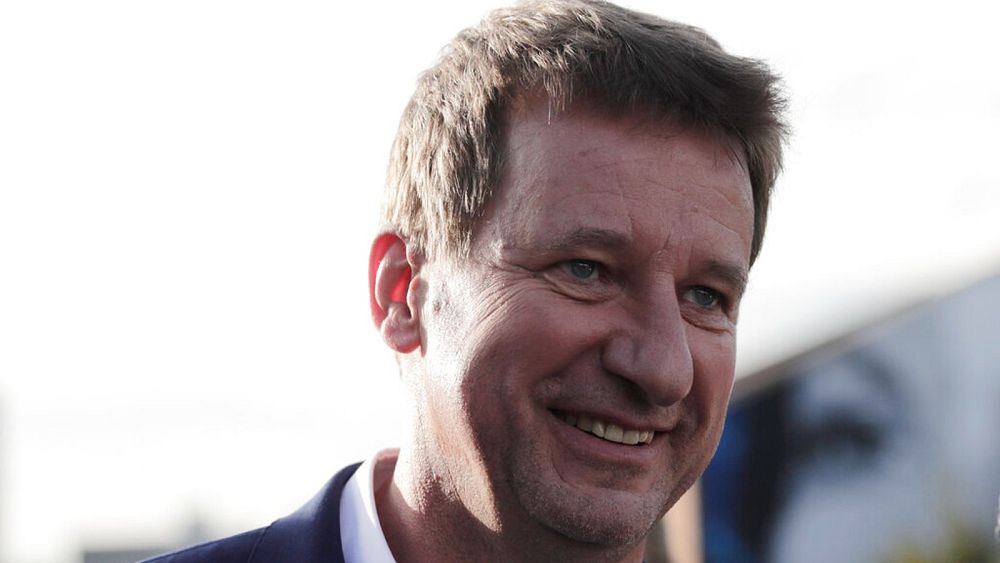
Yannick Jadot will be the Greens’ candidate in next year’s French presidential election after narrowly winning the party’s primary.
Jadot was backed by 51.03% of the party’s militants in the second round of the primary process, according to results released on Tuesday by the Greens.
His rival, Sandrine Rousseau, secured 48.97% of the 104,000 votes cast by militants.
The 54-year-old member of the European Parliament pledged after the results were announced that he will defend “a peaceful society”, “a living planet (…) in harmony, whatever our social background, our aspirations”.
He said he had confidence in those who “innovate, invent, act, on farms, in companies, associations and communities”.
Jadot had been the favourite heading into the primary but Rousseau’s more radical proposals saw her quickly gaining momentum and closing the gap.
She congratulated him on his victory on Tuesday evening but also called for bold action.
“It is a very important issue for the future of the European Union,” she said. “Climate change calls for a radical response” and “the time for half-measures and renunciation is over,” she added.
Polling at 6%
With this victory, Jadot has overcome the “curse” of a party adept at reversals, where the favourite rarely wins the candidacy.
He now faces the challenge of bringing together ecologists who were divided into four almost equal blocks in the first round of the primary.
But he will also have to stand out among an already very crowded field on the French left. So far, at least five other left-wing parties ˜— including the Socialists, La France Insoumise, the Communists, Lutte Ouvriere and former minister Arnaud Montebourg running as an independent — have announced they will be running.
Opinion polls currently predict the Green party will gather about 6% of the vote in April’s presidential ballot — behind populist Jean-Luc Melenchon of La France Insoumise and Anne Hidalgo should the Paris mayor win the Socialist ticket.
The result of the Green primary is expected to have a great impact on the left with both the Socialist party and La France Insoumise hoping to attract those disappointed by Jadot’s appointment.
Green light?
Jadot had already won the Green party’s primary for the 2017 presidential election but rallied the cause of the Socialist’s candidate, Benoit Hamon, after militants backed the motion.
Hamon went on to win just 6.4% of the vote — a historic law for the Socialist Party.
Since then, the Green party has surged in France, just like in other European countries including Germany.
It came third in the 2019 European parliamentary election and made significant gains in the municipal elections held the following year, winning key mayoral races in cities including Lyon, Grenoble, Bordeaux, Poitiers, and Strasbourg and striking deals with the Socialist party in Paris and Marseille.
Other candidates for the French presidential election include Marine Le Pen for the far-right Rassemblement National party.
The right-wing Les Republicains has yet to announce how they will select its candidates but several prominent figures have thrown their hat in the ring, including Michel Barnier, Valérie Pécresse and Xavier Bertrand.
President Emmanuel Macron has not yet made it official but he is widely expected to defend his position and is currently leading the polls.
A Harris Interactive survey released on Tuesday credited him with 23% of the vote in the first round, ahead of Le Pen with 16%.

